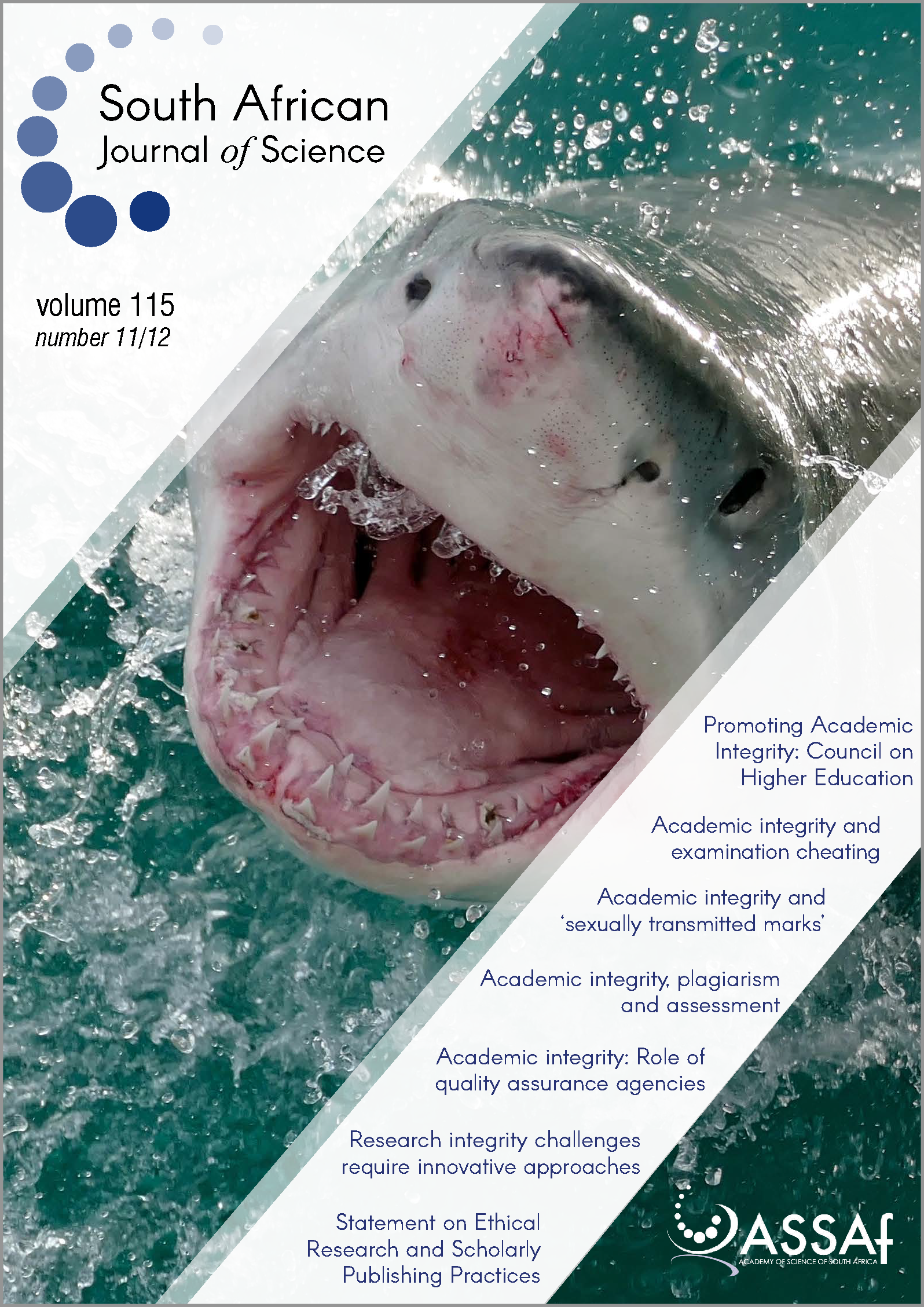Antibiotic sensitivity of bacteria isolated from the oral cavities of live white sharks (Carcharodon carcharias) in South African waters
DOI:
https://doi.org/10.17159/sajs.2019/5972Keywords:
antibiotic resistance, antimicrobial agents, apex predator, emergency medicine, marine microbiologyAbstract
The white shark (Carcharodon carcharias) is responsible for 49% of shark-related injuries in South Africa, yet no information currently exists on the composition or antibiotic resistance of bacteria hosted by these apex predators in South African waters. This study aimed to address this gap by sampling the bacteria present in the oral cavities of 28 live C. carcharias along South Africa’s southern coastline. The antibiotic resistance of the range of microbiota was also assessed using antibiotic disc diffusion tests. A total of 51 strains from at least 20 species of bacteria were isolated from the oral cavities of C. carcharias. Of these strains, the most common bacteria present were Serratia spp., Proteus vulgaris and Vibrio alginolyticus. The overall antibiotic resistance was relatively higher in this study than that reported for bacterial microbiota sampled from other shark species. Results indicate that the combination therapy of imipenem (carbapenem antibiotic) and vancomycin (glycopeptide antibiotic) might be the most parsimonious option to effectively treat infections resulting from white shark bites, particularly in South Africa. It is hoped that, in addition to assisting medical professionals to treat shark bite victims, these findings enhance the understanding of the microbial communities present in large coastal predators and their surrounding environments.
Significance:
- Overall antibiotic resistance of bacteria in the oral cavities of C. carcharias was relatively high.
- Combination therapy of imipenem (carbapenem antibiotic) and vancomycin (glycopeptide antibiotic) is recommended for the treatment of white shark bites, particularly in South Africa.
- The findings add to understanding of the microbial communities present in large coastal predators and their surrounding environments.
Published
Issue
Section
License

All articles are published under a Creative Commons Attribution 4.0 International Licence
Copyright is retained by the authors. Readers are welcome to reproduce, share and adapt the content without permission provided the source is attributed.
Disclaimer: The publisher and editors accept no responsibility for statements made by the authors
How to Cite
- Abstract 2035
- PDF 878
- EPUB 205
- XML 406












.png)